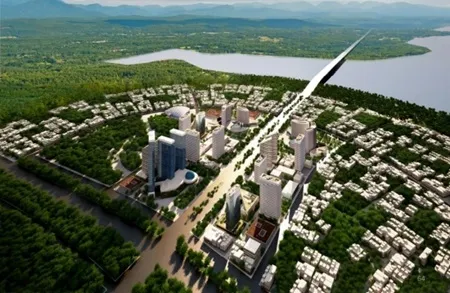Quang Ninh plans economic zone on Chinese border

Government Office Vice Chairman Nguyen Cao Luc announced the construction and socio-economic development plans over the next five to fifteen years, with vision until 2050, at a ceremony held by the provincial authorities last weekend.
As approved by Prime Minister Nguyen Tan Dung earlier this year, the zone covers a total area of more than 120,000 hectares in Mong Cai City and Hai Ha District. It borders China in the north, and the East Sea in the south-east.
Mong Cai People's Committee Chairman Duong Van Co said that the zone would be developed in multi-sectors, and that trade, tourism and industry were expected to be the key fields that generate high added values.
According to the plans, Mong Cai, which has an international border crossing and Tra Co beach and Ka Long river, will be the major area for farm produce, forestry products and consumer goods production, as well as import-export activities.
Hai Ha will be specilised for sea ports and new urban areas that are integrated to marine economic development.
The zone is set to become an important pole that drives economic progress in Viet Nam's northern region and along the coast of the Gulf of Tonkin. It will also link with China's Kunming economic corridor.
"By 2030, the zone will be a free economic area with modern industries and services, and sustained growth. It will actively contribute to the process of international integration," Co said.
He said, however, that comprehensive development of road and seaway infrastructure is necessary to achieve the goal. Facilities for healthcare, education and other fields such as electricity, water and the environment also need to be upgraded.
Quang Ninh People's Committee Chairman Nguyen Duc Long said local authorities had asked ministries and sectors to build policies to form a zone for economic cooperation between Mong Cai and Dongxing District in China's Guangxi Province.
On November 7, the authorities signed memoranda of understanding with investors of 10 projects in Mong Cai, with a combined capital of VND9.73 trillion (US$432.44 million).





